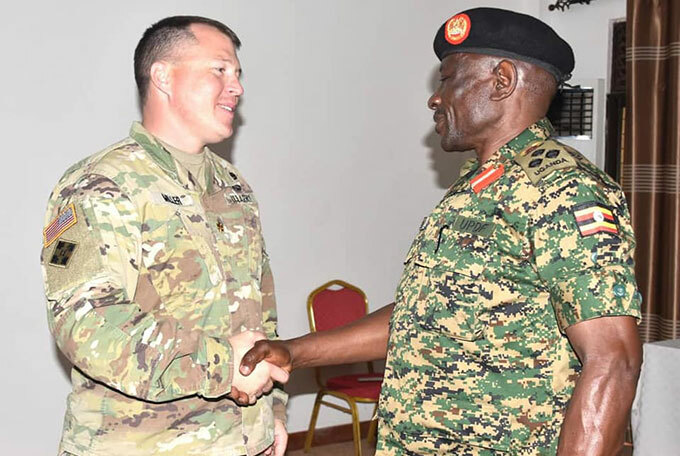UPDF partners with US to develop civil-military syllabus
The syllabus will be incorporated in all training manuals for the different training schools and colleges within the UPDF.
SECURITY
The Uganda Peoples' Defence Forces (UPDF) in partnership with facilitators from the Joint Special Operations University from the US has developed a Civil-Military (CIMIC) syllabus.
The syllabus will be incorporated in all training manuals for the different training schools and colleges within the UPDF.
The syllabus was developed during the Civil-Military Basic Phase 1V Course held in Kampala from September 23 to September 27, 2019.
The course included topics like introduction to CIMIC, its core functions, principles, duties and responsibilities, communication, law of armed conflict, and terms of female engagement, among others. Several representatives from different UPDF units and formations participated in the five-day training.
While presiding over the closing ceremony of the CIMIC Basic Course, the UPDF Chief of Training and Recruitment, Brig. James Kinalwa, hailed the US Government for supporting UPDF in building capacity and professionalism.
Kinalwa noted that conflicts have changed faces, as they no longer have frontlines and are not visible; thus necessitating the training to transform forces to suit the demands of the situation.
Kinalwa added that UPDF puts humanitarian considerations at the forefront of all its engagements since it is a pro-people force.
He thus called for the need to have a CIMIC officer at all the different levels of command to identify, assess and coordinate humanitarian factors before engagement.
"The UPDF umbilical cord is the civilians, and this syllabus is a great milestone in the professionalisation of the army," he said.
The general pledged to support the implementation of the newly developed syllabus and called upon CIMIC officers to behave rationally and show commitment.
On behalf of the American Ambassador to Uganda, Maj. Miller, explained the importance of supporting CIMIC operations for the success of any engagement.

He said UPDF CIMIC operations are already on record within Uganda and Somalia, saying this must never stop but rather be improved and strengthened through training and the creation of a special CIMIC program. Miller encouraged participants to design a CIMIC syllabus that is in tandem with the UPDF doctrine.
The UPDF Deputy Chief of CIMIC operations, Col. Nelson Aheebwa, on behalf of the Chief of CIMIC, Brig. Innocent Oula, commended both the UPDF leadership and US Government for identifying the training gap and addressing it.
In a speech read for him by Aheebwa, Brig. Oula noted that the situation is always changing and forces should be adaptive.
"Using soft power capability strengthens our relationship with the people. This is work in progress evidenced by the need for a needs assessment before any engagement," Oula noted.
The main instructor from the Joint Special Operations University, Ken La Voy, thanked participants for their zeal to learn and urged them to practice and harmonise what they have learnt with what they already know. The workshop climaxed with the award of certificates to all participants